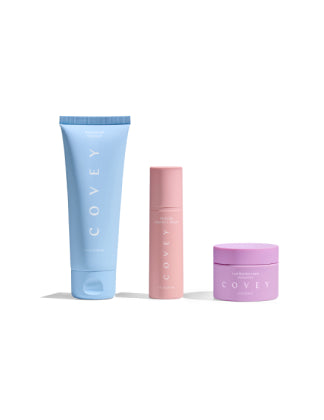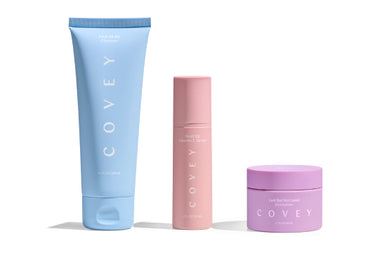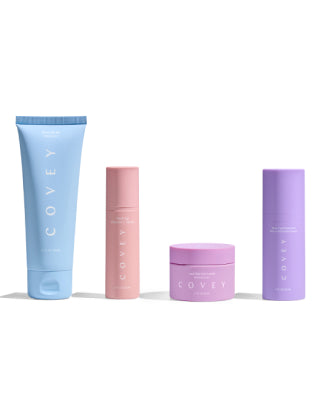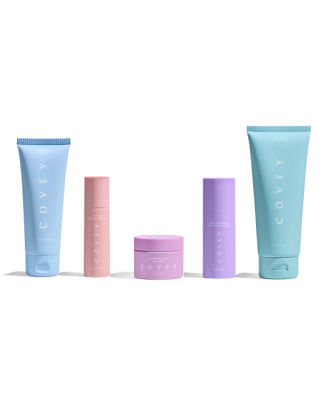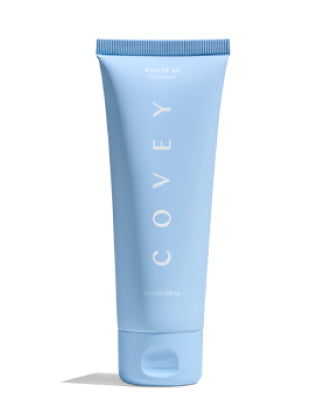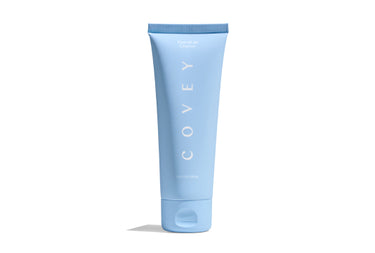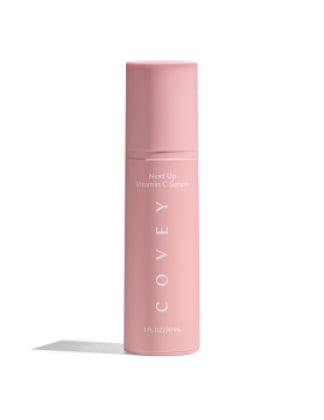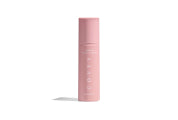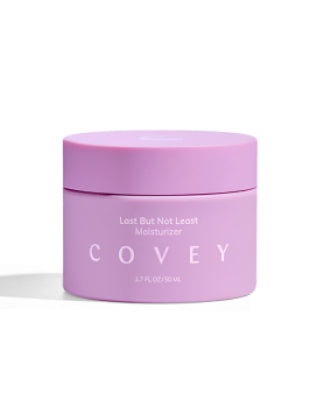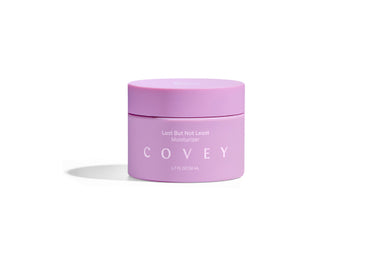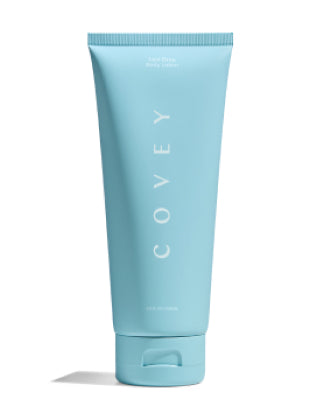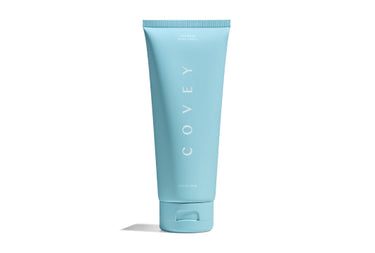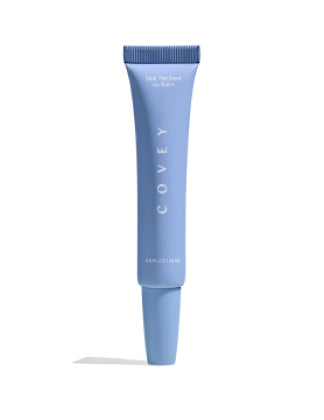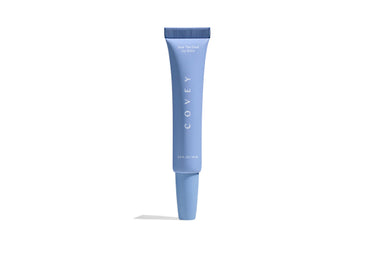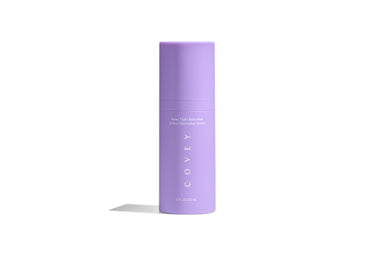
The 101 Guide to Pregnancy Skincare
The moment you discover you are expecting a baby, it feels like your world is turned upside down. And that’s because it is: your body begins the incredible, fascinating, impressive — and okay, exhausting — process of growing a human.
For first-time parents, you anticipate how your stomach will expand to make room for tiny legs and arms. And you know you’ll need to cut out your wine and sushi habits.
But what about pregnancy skincare?
Yep, when we say everything changes, we mean it. From the inside out, women must adjust their lifestyle to meet the needs of their baby. You may start to notice new issues you never experienced before (hello, acne and dry skin!). Plus, specific products and treatments may no longer be recommended by dermatologists and OBGYNs, as they could impact fetal growth and development.
Your pregnancy skincare routine, demystified
If it feels overwhelming, take a deep breath, mama. You got this! At Covey, we aim to make all parts of life simplified, easier, and hopefully, more radiant. And this includes the significant milestones, like expanding your family.
Consider this our 101 guide to skincare for pregnancy. We will cover everything you need to know for the next 40 weeks, including:
- How your skin may change during pregnancy.
- Why skincare safe for pregnancy is a loaded term and tricky to define.
- Common skincare ingredients you should avoid in your pregnancy skincare routine.
- How to check your products for safety.
- And, how to build a pregnancy skincare routine with Covey
How your skin may change during pregnancy
One of the most frustrating parts of pregnancy is how no two women have the same experience. Your best friend may have intense nausea and swollen breasts while you only feel super-tired. The same is true for pregnancy skincare issues. While many women report some changes, they vary greatly, depending on their hormones, skin color, and other factors.
According to Healthline, the most common skin changes during pregnancy include:
- Acne: During pregnancy, your hormones are raging and changing, which can throw off your skin's balance.
- Dry skin: Your baby soaks up your water intake, and you’re producing more blood, so you need more H20 to make up for it.
- Darkening skin: This typically happens around your areolas in the second trimester and on your naval in the third trimester. You may also develop a condition called melasma or chloasma, where you find dark or red patches on your face and body.
- Hair growth or hair loss: Your hair may feel softer and fuller during pregnancy but then could fall out postpartum.
- Stretch marks, spider veins, and more: Sadly, there’s not much you can do to prevent these skin conditions since they are hereditary.
Also, if you are someone who already has a skin issue like rosacea, psoriasis or eczema, you could experience fewer symptoms — or more. It all depends on how your unique chemical makeup reacts to pregnancy.
Why ‘pregnancy-safe’ beauty is tricky to define.
Raise your hand if you’re pregnant and you now have a new skill to add to your resume: expert Googler. It’s normal (and well, to be expected) to wonder about every symptom you experience and worry about everything you eat or do. After all, it is a great responsibility to carry a human, and as their mom, you want to do all you can to protect them from day one.
So when your doctor tells you to be mindful of the products you use daily, you likely turn to search engines to figure out what pregnancy-safe beauty means.
Here’s where the real issue arrives: there is not such thing as a ‘pregnancy-safe' beauty product.
Though a product may include ingredients that aren’t on the prohibited list (more on that soon), it’s not ethical to test products on expecting women. Think about it: you can’t ask one group of pregnant females to use a product that could potentially harm their fetus and then ask another not to.
While Covey is free of ingredients that are known to be dangerous for this life stage, we won’t call ourselves a pregnancy-safe beauty brand since that’s misleading. As with any decision during this special time, it’s always best to talk to your doctor before changing your skincare routine.
What ingredients you should avoid during pregnancy
Again, here’s our reminder that it’s really, really tough to find specific data on what’s okay for pregnancy and what’s a no-no. Most of the research available that OBGYNs and dermatologists use as their guide is from studies conducted on animals or one-off cases that were examined. As you create your pregnancy skincare approach, have an open conversation with your trusted physician about what you should avoid.
According to Healthline, these are general ingredients that more derms and OBGYNs say are generally advised against during those 40 weeks:
Retinoids
Sadly, your eye or face cream ripe with retinoids will need to go on the back burner for a few months. This is because after you apply retinoids to your skin, they convert to retinol.
And too much vitamin A (aka, the star that fights wrinkles and fine lines) has been linked to congenital disabilities. Though the most significant risk is found in prescription retinoids like Retin-A and Accutane, it’s best to avoid retinoids altogether while expecting.
Missing the benefits of retinol in your routine? Derms have started to recommend bakuchiol as a retinoid alternative during pregnancy and breastfeeding. As always, be sure to ask your derm before introducing any new products to your pregnancy skincare routine.
Learn more about Covey's Sleep Tight Bakuchiol Serum.
Salicylic acid
Before you have a panic attack over your face wash, take a pause. Salicylic acid is only dangerous if it’s a super-high dose. It’s an anti-inflammatory that many women turn to fight acne, and anything you find over the counter will have a low amount. The concern for salicylic acid and pregnancy skincare is usually only in oral medication or a chemical peel.
Hydroquinone
Technically speaking, there hasn’t been a study that connects congenital disabilities and this ingredient. As we shared, some women will experience melasma and chloasma during pregnancy, and prescription hydroquinone is typically the solution. However, doctors are wary since our bodies can absorb hydroquinone up to 35 percent more than other ingredients. This means it may get to your fetus, and thus, should be avoided.
Phthalates
If you check the ingredients of some of your beauty products, you may see phthalates since they are common additives. While it hasn’t been tested on humans, this ingredient has been tied to hormone dysfunction and reproductive issues in some animal studies. Remember, phthalates take on all sorts of names, so you’ll most likely see it under ‘diethyl phthalate’ in beauty or skincare products.
How Covey can help throughout your pregnancy.
All three products in Covey’s routine are meant to support a healthy and radiant complexion through your pregnancy. Our products are free of known dangerous ingredients that could harm you or your baby.
Even so, we always recommend transparency with your OBGYN and dermatologist just to be on the safe side. Learn more about Covey’s ingredients and approach here.


